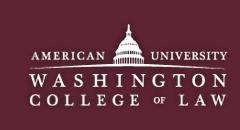Abstract
Within days of the Supreme Court’s decision overturning Roe v. Wade, progressive prosecutors throughout the country announced that if their jurisdictions enacted restrictions on abortion, they would not prosecute the individuals who had these procedures or the doctors who performed them. This is the latest example of situations, like drug crimes, illegal gun possession, and other offenses, where prosecutors have declined to enforce a state law as a matter of public policy. Critics of this broad use of prosecutorial discretion have argued that it violates the constitutional separation of powers.
This Article argues that prosecutorial discretion is well-founded in American history, ethics, and constitutional law. This Article examines the history of prosecutors as elected officials and the impact the election process has had on the exercise of discretion in charging decisions. It explores the ethical and constitutional framework in which the exercise of prosecutorial charging discretion takes place and examines how prosecutors on both ends of the political spectrum have used charging discretion as a means of furthering public policy. This Article concludes by arguing that prosecutorial discretion is a critical part of our nation’s careful system of checks and balances, and that this discretion reinforces, rather than undermines, the separation of powers.
Included in
Constitutional Law Commons, Health Law and Policy Commons, Law and Gender Commons, Sexuality and the Law Commons
